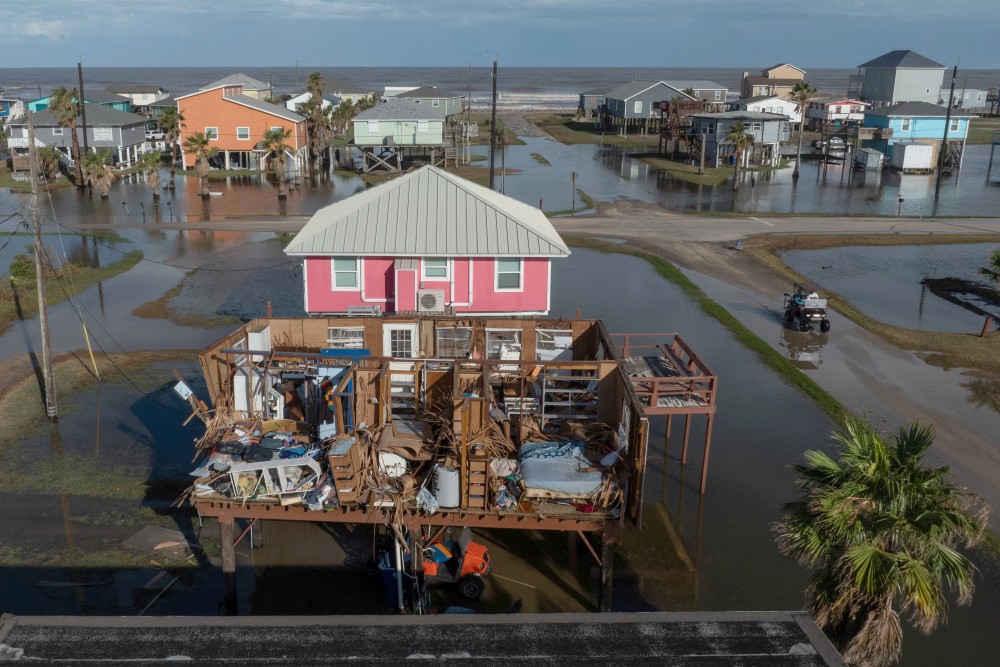
WASHINGTON — Hurricane Beryl’s strong winds and heavy rains knocked out power to about three million homes and businesses on July 8, and also impacted the offices of Catholic Charities of the Archdiocese of Galveston-Houston, the agency ready to help in disaster recovery.
“Our buildings are undamaged, but our staffing and technology infrastructure currently do not allow us to open to serve,” said Betsy Ballard, the agency’s communications director.
“Like more than 2 million people in our area, our agency and most of our staff are coping with loss of power, spotty cell phone service, and lack of internet,” she told The Tablet from the home of a coworker one day after the hurricane swept through Texas.
She said that although the loss of phone and internet service “hinders communication with staff and our clients,” the agency planned to begin helping clients as soon as possible, which she hoped would be in the next few days.
Ballard said the agency maintains its “commitment to meet more short-term needs of families following Hurricane Beryl, and we will be here to provide longer-term recovery assistance in the weeks and months to come.”
She also noted, based on her experience with Hurricane Harvey in 2017, that a disaster like this can take years to fully recover from.
Beryl came ashore in southern Texas as a Category 1 hurricane and killed six people in the state as its winds toppled transmission lines and knocked down trees that took down power lines. As it moved inland, Beryl was downgraded to a tropical storm.
Recovery and cleanup efforts began amid extreme heat and humidity.
The National Weather Service’s Houston office warned area residents to take precautions in their recovery efforts, pointing out that high temperatures and no access to air conditioning could cause heat-related illnesses.
In a July 8 press conference, Texas Acting Governor Dan Patrick, filling in for Gov. Greg Abbott, who is currently in Taiwan setting up a trade office, said the state’s power restoration effort would take days and priority would be given to vulnerable communities such as senior citizens.
“We’ll need a little bit of patience, and we’ll get there,” he said.
